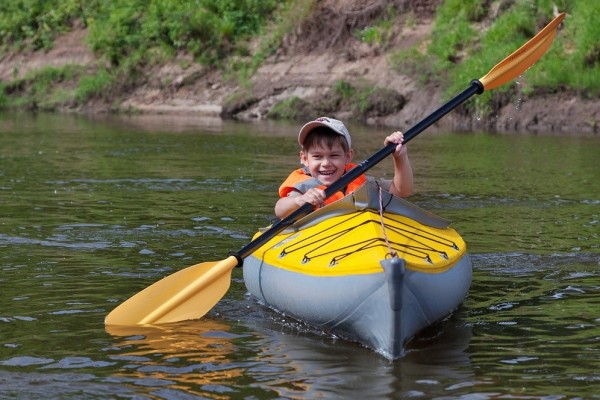We just returned from a camping trip at the Causey Reservoir where my son Jadden and I rafted for our first time.
Actually, we rode in inflatable kayaks.
These are not quite as simple as they might seem.
We doubled in a kayak to begin with and found it very difficult to coordinate efforts. When I was steering from the back, Jadden was rowing on the opposite side in the front, which sent us into a tailspin. In fact, we had to be rescued from grounding our kayak in the rushes.
Jadden began to get irritable with me. I was reminded of the times my mom tried to help me with math. I would argue with her. I would take temper tantrums. It was difficult for me to acknowledge that my mom could help me.
Why is this the case? Why is it difficult for our children to accept help from their parents?
However, I was not much help with the kayak, and perhaps Jadden sensed this. Perhaps he sensed that it would be more fruitful to venture out on his own.
So he did. After struggling for quite some time together and Jadden imploring me to turn back, he was given his own kayak by our travel compatriot. I didn’t know how Jadden would fare. But he did remarkably well.
As we cruised down the Causey, people remarked at his rowing prowess. He figured it out. When given some space to figure it out, he did. And he did much better than I would have done on my own. He probably did more better than he would have done with my help.
Perhaps there is a lesson to be learned here. Maybe kids’ defensiveness rises when they sense we are about to take away a bit of their agency.
When Jadden was given that agency, he did wonderful things with it. It’s hard to know when to intervene and when to stand back and let kids struggle.
I would argue that the same holds true in education. It is painful to watch kids struggle through a math problem or struggle with an unknown word. We as teachers (and parents) want to jump in and save the child from any unnecessary discomfort.
What we have ended up creating though is a nation of kids who give up way too easily and way too fast.
Later that evening, my partner attempted to show Jadden how to light the campfire the Boy Scout way—with a flint and steel. Jadden spent nearly an hour trying to light the fire this way. Even when we lit the fire using more modern methods, he continued to persist with his project. This is perseverance. And it’s something not enough children possess.
The difference in mathematics performance between our school-age children and those in other competitive countries boils down to perseverance. That’s right. Kids in Japan aren’t better equipped at math. Their brains aren’t hard-wired for algebra any more than our kids’ are. They don’t give up as easy. They’ll stick with a problem for hours if necessary, trying this way and that way until arriving at a solution. This is admirable, and a key to success not only in math but in life.
Again, I don’t know where this line falls—when to intervene and when to allow struggle. This weekend provided a valuable lesson, though, in the fact that I am far too willing to “save” my kids rather than allow them the character-building grind of struggle and self-discovery.





No comments